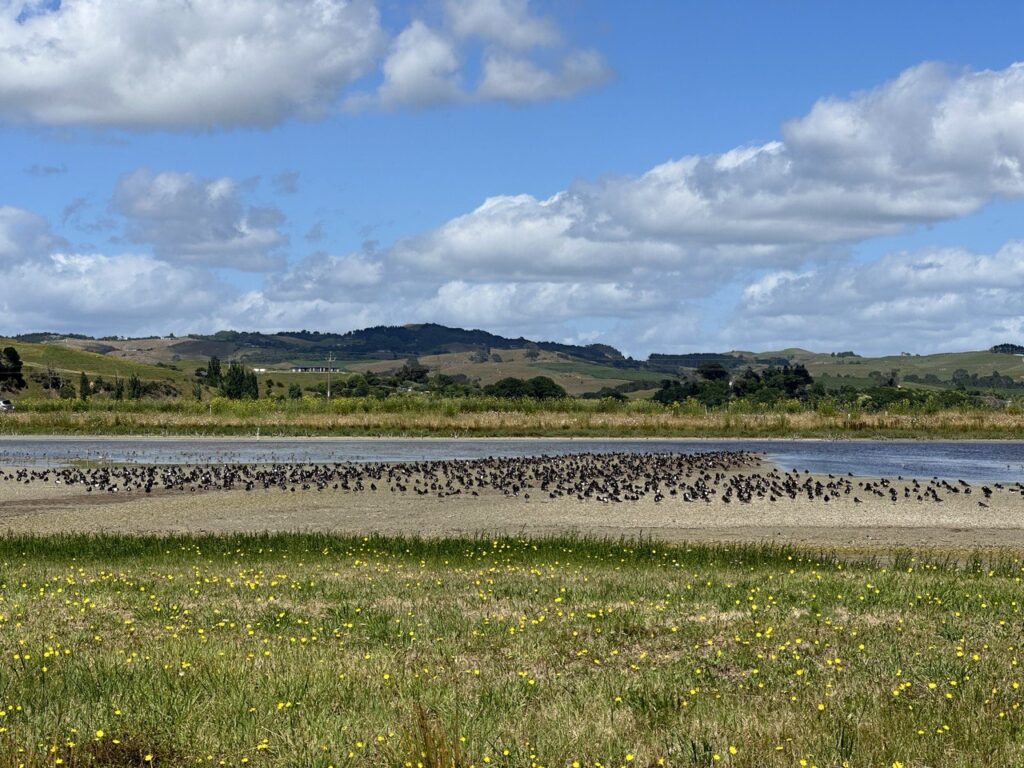
In January 2024’s What’s been happening in the markets article we look at Simplicity’s fee updates and Kernel’s new bond fund, explore the implications of the new Bitcoin ETFs, and share what’s been going on with our investment portfolio.
This article covers:
1. Product updates
2. Market Movements
3. What we’ve been up to
1. Product updates
Simplicity cuts fees

From 1 February, Simplicity’s diversified KiwiSaver and non-KiwiSaver funds (High Growth, Growth, Balanced, Conservative, Defensive) are having their management fees cut from 0.29% to 0.25% p.a. This is Simplicity’s third management fee cut in less than a year (going from 0.31% to 0.30% in April 2023, then 0.30% to 0.29% very shortly after).
This is great news for those investing through Simplicity as it means less money eaten away by fees and more money invested in assets and making a return. While Simplicity’s individual fee cuts have been small, they’re starting to add up and should make a meaningful difference to investor outcomes over the long-term. This price reduction also puts Simplicity’s management fees on par with Kernel’s pricing who also charge a management fee of 0.25% for most of their funds. We compared the two fund managers in an article we published earlier this month:
Further Reading:
– Simplicity vs Kernel – Who’s the better low cost fund manager?
Bitcoin ETFs
The most widely anticipated financial product to come out this month are the new Bitcoin spot ETFs, funds that invest in and hold Bitcoin. There are a total of 11 ETFs, which launched following their approval by the SEC (the financial markets regulator in the United States):
- ARK 21Shares Bitcoin ETF (ARKB)
- Bitwise Bitcoin ETF (BITB)
- Franklin Bitcoin ETF (EZBC)
- Fidelity Wise Origin Bitcoin Trust (FBTC)
- Grayscale Bitcoin Trust (GBTC)
- Hashdex Bitcoin ETF (DEFI)
- Invesco Galaxy Bitcon ETF (BTCO)
- iShares Bitcoin Trust (IBIT)
- VanEck Bitcoin Trust (HODL)
- Valkyrie Bitcoin Fund (BRRR)
- WisdomTree Bitcoin Fund (BTCW)
Implications for New Zealand investors
Not much has changed is our answer. New Zealanders can already buy Bitcoin through various methods. Firstly, you could buy and hold Bitcoin directly by using a crypto retailer/broker like Easy Crypto. Or you could buy Bitcoin through a fund like the Vault International Bitcoin Fund which is available through InvestNow. Therefore Bitcoin is an asset that Kiwis have already had relatively easy access to.
All these new ETFs provide is another channel for investors to buy and sell Bitcoin. Given these ETFs are listed in US, you can now use brokers like Sharesies, Hatch, or IBKR to get exposure to the cryptocurrency.
Some argue that these ETFs are a more legitimate or recognisable way to access Bitcoin. But ultimately the asset’s intrinsic value stays the same regardless of what channel you use to invest – The existence of ETFs to access Bitcoin doesn’t necessarily make the cryptocurrency better, more useful, or more valuable.
Bitcoin ETFs vs Vault’s fund
These ETFs work somewhat similar to the Vault Bitcoin Fund (which we reviewed below). When you invest in them, you don’t hold the cryptocurrency directly, but rather a financial instrument that invests into Bitcoin. This gives you exposure to the capital gains or losses of Bitcoin, and saves you from the hassles of having to self-custody the coins. However, you do lose some of the use cases of Bitcoin, such as being able to use it as an alternative currency or a hedge against the current financial system.
So should you invest in Vault or one of these new ETFs? This question is similar to deciding between investing in the S&P 500 through a locally domiciled fund (like the Smartshares US 500 ETF) versus through a US domiciled ETF (like the Vanguard S&P 500 ETF). There is no definitive answer to this question.
The US-listed Bitcoin ETFs have relatively low management fees (starting from 0.20%), but you have to pay brokerage and foreign exchange fees (charged by your investment platform) to access these. These ETFs also fall directly under the FIF tax rules, so may have more cumbersome tax treatment if you have a total of more than $50,000 NZ invested in FIFs.
On the other hand, Vault has higher management fees of 0.95% (which has recently come down from 1.75%). However, the fund charges a spread of just 0.25%, which is likely to be much cheaper than the brokerage and FX fees to buy a US ETF. In addition the fund is structured as a PIE so may be beneficial to some from a tax perspective, and avoids the complications of handling FIF tax on your own.
Further Reading:
– Vault International Bitcoin Fund review – The best way to own Bitcoin?
– Smartshares US 500 (USF) vs Vanguard S&P 500 (VOO) – Which ETF is better?
Bitcoin in KiwiSaver?
We’ve also seen lots of people ask whether these ETFs might open up the ability for people to invest their KiwiSaver into Bitcoin. Unfortunately this is unlikely, because there is no KiwiSaver scheme that allows you to freely invest into whatever ETF you want. Yes, the likes of Sharesies and Craigs do have self-select schemes, but only allow you to pick from a curated list of assets. And neither provider has provided any indication that they’ll be including these Bitcoin ETFs into their offerings anytime soon.
But for those you who are really keen to have their KiwiSaver money in Bitcoin already have another solution through kōura’s KiwiSaver scheme. Since 2022, kōura has allowed investors to allocate up to 10% of their KiwiSaver portfolio towards their Carbon Neutral Crypto Currency Fund which invests in Bitcoin. Being a speculative asset, it’s unlikely they’ll be much appetite from the regulators to allow an allocation greater than the current 10% limit. We’d say these restrictions are a good thing – Investments/gambling in Bitcoin and crypto are perhaps best left for outside of KiwiSaver where one’s house deposit or retirement nest egg is less at stake.
Further Reading:
– Kōura review – Crypto meets KiwiSaver
Kernel bond funds

Bonds are an important asset class, catering to those who don’t have the long-term investment timeframe or high risk tolerance to invest fully into shares. Kernel (whose funds have so far primarily been invested in shares) has been working on expanding their bond products with a few standalone bond funds. Their first bond fund is the Kernel US Bond Fund, which tracks the Bloomberg US Aggregate Total Return Index hedged to the NZ dollar, and has management fees of 0.30% p.a. This fund currently isn’t available in their KiwiSaver scheme.
Other standalone bond funds that Kernel are working on include a NZ Bond fund, and two funds with set maturity dates which invests in NZ bonds that mature around March 2027 and March 2029 (kind of like a medium-term term deposit). Previously the only way to invest in bonds through Kernel was through their Balanced Fund (which also included an allocation towards shares and cash). These standalone funds should give investors more flexibility in constructing their own DIY portfolios, for example, if you want a different asset allocation from their Balanced Fund.
Future Sharesies features

2023 was a busy year for Sharesies, launching several new features including their high interest Save product, a self-select KiwiSaver scheme, price notifications, and Dividend Reinvestment Plans (DRPs). 2024 looks to be no different, with the platform giving a preview of the new developments they’re planning to launch this year:
Sharesies
- A Save fund that takes advantage of a PIE tax structure
- More DRPs
- Live data for US investments
- A report to help with foreign investment fund (FIF) tax
- Paying annually for pricing plans
- Over-the-counter (OTC) US investments
- More choices added to the Sharesies KiwiSaver Scheme, including more base funds, the option to select more than one base fund, US and Aussie self-select investments, and a multi-currency cash fund.
That’s plenty of handy features Sharesies customers can look forward to. We wish other investment platforms would follow suit and give investors an insight into their upcoming new features.
2. Market Movements
Here’s how the markets have performed in January 2024 (as at 30 January), in both their local currencies and in NZ dollar terms:
| Local currency | NZD | |
| NZ shares (S&P/NZX 50) | 1.22% | 1.22% |
| Australia shares (S&P/ASX 200) | 0.12% | -0.05% |
| US shares (S&P 500) | 3.25% | 6.34% |
| Japan shares (Nikkei 225) | 7.77% | 6.24% |
| UK shares (FTSE 100) | -0.87% | 1.83% |
| Bitcoin | 3.19% | 6.28% |
The markets generally continued their positive performance from December 2023, especially the US and Japanese markets.
Bitcoin also performed well in January, but its performance figures don’t tell the full story. The cryptocurrency peaked at over $47,000 early in the month. However, it’s finishing the month at just over $43,000, falling since the ETF approvals. It’s hard to pinpoint the exact reasons why Bitcoin dropped, but part of it is likely due to “buying the rumour and selling the news”. The fact that Bitcoin ETFs were coming was already factored in to the coin’s price prior to the ETF approvals – Therefore Bitcoin’s price didn’t take off when the news of the approvals was actually confirmed. Instead people sold off their Bitcoin to take profits, causing its price to decrease.
3. What we’ve been up to
Investment platform security
This month we had a bit of a security fail with our Kernel investment account. Like a lot of people, we’ve been lazy by reusing the same passwords across multiple sites. That’s not the best practice when trying to keep our personal data secure and investments safe. Though in this case we did have 2-factor authentication (2FA) enabled, which is where our security fail comes in.
It starts with us trying to fix our password reuse issue by gradually changing to stronger, unique passwords, with the help of our iPhone’s built in password manager. When we changed our password for our Kernel account, unfortunately a bug in Apple’s password manager erased our 2FA code for Kernel! Without our 2FA codes being generated we were totally locked out of our account. Fortunately after the relevant security checks, Kernel’s support team was able to sort out our issue quickly and disable 2FA on our account. To be clear, this was a fault with our own (or Apple’s) security measures, rather than a flaw in Kernel’s security.
Cybersecurity is definitely a balance – You want to make things secure enough to keep your accounts protected, but not so secure that your accounts become too hard to use or you end up locking yourself out. With this in mind we decided to turn off 2FA for our Kernel account (though we still use it for many other sites). If someone did manage to get access into our account, the impact would be low. At worst the hacker could sell all our funds, but they wouldn’t be able to withdraw the money as investment platforms have controls to ensure our funds can only be withdrawn to our own bank account.
It’s No Secret have a great podcast episode on investment platform safety and security, and we also have a previous article on Sharesies’ 2FA journey if you’re keen to dive deeper into this topic.
Further Reading:
– Testing Sharesies’ security – Is your account vulnerable?
Selling investments
Those who have been following us for a long time will know that we have a portfolio of individual NZ companies including Contact Energy, Spark, Infratil, EBOS, and several others. We intend to sell most of these individual shares and redeploy the cash into our index funds and to pay off our mortgage. This month we sold off our shares in Spark, freeing up several thousand dollars to reinvest. The benefits of this are:
- Simplifies our portfolio – Fewer items in our portfolio means less time and effort spent on portfolio admin, and more time doing other things.
- Reduces overlap – Our NZ shares index fund already has exposure to companies like Spark and Contact Energy. These are good companies but not so amazing that we feel like we need to double up on our exposure to these companies.
- Increases diversification – It may seem like having fewer assets in our portfolio means less diversification. But this move actually boosts diversification, as capital previously concentrated towards a single company is now being spread across several hundred companies through our index funds.
Outside of investing
It’s been a busy month!
- We made five trips to Bunnings, mainly for garden and outdoor improvement stuff. An example of the many hidden costs to home ownership, reinforcing our view that your own home is a lifestyle asset, rather than a financial investment.
- We went to see some birds at the Pūkorokoro Miranda Shorebird Centre, and pick blueberries at Blueberry Country in Ngatea.


- We’ve spent a lot of time planning our upcoming overseas trip to Japan. It’s our first new destination in several years, and we’ve forgotten how much effort it takes to plan an itinerary, figure where to stay and where to eat, as well as how to deal with the foreign currency.
- We continued to try different croissants across the Auckland region. This month we went to Fa Artisan Bake (Silverdale), Z Patisserie (Flat Bush), and Maison des Lys Patisserie (Grey Lynn). The former two worth a try if you’re out in those areas. But as for Maison des Lys there are lots of competing bakeries around Central Auckland, and they don’t really stand out amongst them (unless you want vegan stuff).



Thanks for reading and your ongoing support!
Follow Money King NZ
Join over 7,500 subscribers for more investing content:
Disclaimer
The content of this article is based on Money King NZ’s opinion and should not be considered financial advice. The information should never be used without first assessing your own personal and financial situation, and conducting your own research. You may wish to consult with an authorised financial adviser before making any investment decisions.
I always enjoy your posts – thanks for all the hard work.
On the food side, have you tried La France bakery in Silverdale, opposite Briscoes? Amazing pastries.
Thank you! We haven’t tried yet, but it’s on our “want to go” list. Looking forward to trying it!
Thanks for another valuable review 🙂 Gelreat to read more about what the new Bitcoin ETFs mean for NZ, and your platform security comment got me reflecting too.
Thank you!
Very informative – as always. Good to see Vault’s fee drop which isn’t well advertised.
Thank you!
Re Japan, some tips from our first trip there last year: Get a data e-sim (we used Airalo). Use Apple Maps for public transport planning, it’s super accurate and easy. Dinner out is much easier if you have a reservation. Many restaurants will be full and may even have queues outside if you just show up. But a reservation means your table will be waiting. We used TripAdvisor to find restaurants with online booking. ATMs in 7-11 stores will always work with your NZ bank issued credit or debit card, but many high street banks will not. You will want to carry some cash as many places expect it still.
Thanks Adrian, appreciate the tips. We gotta get on to figuring out where we want to eat – so many choices 😵
Hey, great content as usual – re: the Kernel US Bond fund and tax. Do we as investors pay the FDR tax indirectly through Kernel like we would do on a global share fund?